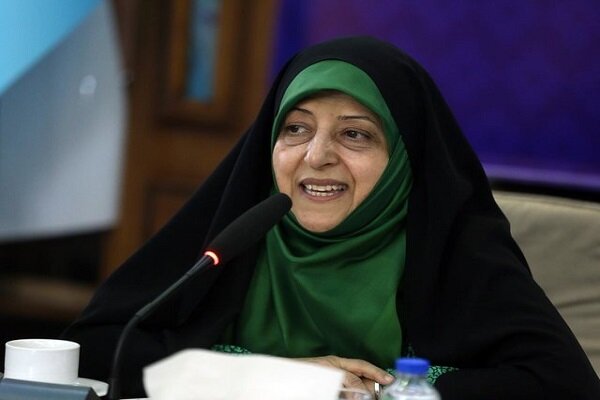"The International Center of Excellence on Family Dialogue can be effective in transferring Iran's experience of family dialogue, communication skills, and intergenerational dialogue," Massoumeh Ebtekar stated, pointing out that the Islamic Republic of Iran has important legal structures regarding families.
At the inauguration ceremony of the International Center of Excellence on Family Dialogue, Ebtekar emphasized the positive enhancement of family dialogue and communication skills, saying that the subject of the family does not merely belong to a particular country, ethnicity, time or place, but is rather universal and transcendent.
The Vice President for Women and Family Affairs stated, "Preserving and strengthening the family's foundations is a pillar that can contribute to the whole of human society, and today social cohesion must not only be achieved at the national level but also at the global level."
"In this particular activity, the Ministry of Education has been the main partner with us. We continued to work closely with the Ministry of Foreign Affairs on opening this center. The Cultural Ambassadors' project is a collaboration between the Department of Women and Family Affairs with the Ministry of Science and Higher Education to develop communication and dialogue skills among student organizations."
Ebtekar also pointed out that the National Family Dialogue Project is at its early stages in 31 provinces of the country, and has gone to the second stage in other provinces. An important feature of this project is that it tends to each province's specific family needs and problems.
"With the fast pace of communication in many countries around the world, families have been threatened, so this issue needs attention and assistance in order for the family to play its central role in society, and in this respect, it is important to reach a common awareness and understanding in order for nations to share their experiences."
Vice President for Women and Family Affairs said, "Increasing dialogue skills within societies, in addition to reducing the violence, conflict, and tensions that are perpetrated by hostile designs against nations, can also contribute to greater convergence between nations and the achievement of world peace."
Massoumeh Ebtekar continued, "Important legal structures have been established to strengthen and support the family center in our country, and these structures help the family get the necessary support they require. The general policies of the Supreme Leader on Family Matters, Article 6 of the Country Development Plan, the Family Protection Act and many other laws are devoted to strengthening and strengthening families in our country."
Ebtekar added, "Our approach focuses on the individual rights of family members, especially women and children, as well as the work-life balance, so that women can play family roles alongside their spouses and children, in addition to their individual roles."
"In this regard, the IESCO National Commission has specifically accepted the proposal of this Vice Presidency, and we welcome this cooperation to further the goals of the Center in engaging with Islamic countries and hope that it will work," the official said.
Pointing out that family-based NGOs, the Iranian Sociological Association and the Imam Moussa Sadr Dialogue Center have made great efforts to develop inter-family and intergenerational dialogue, she said, "We expect organizations and International organizations that have good family-related missions to join us so that this Center, with all its functionality and dimensions, can be an effective center for transferring the Islamic Republic of Iran's experience in family dialogue in the Islamic world."
MNA/PR
























Your Comment